 Business Tax Relief
Business Tax ReliefTax penalties and debt can escalate quickly if ignored, but the IRS and state agencies offer relief options such as penalty reductions, settlements, and payment plans for eligible taxpayers.


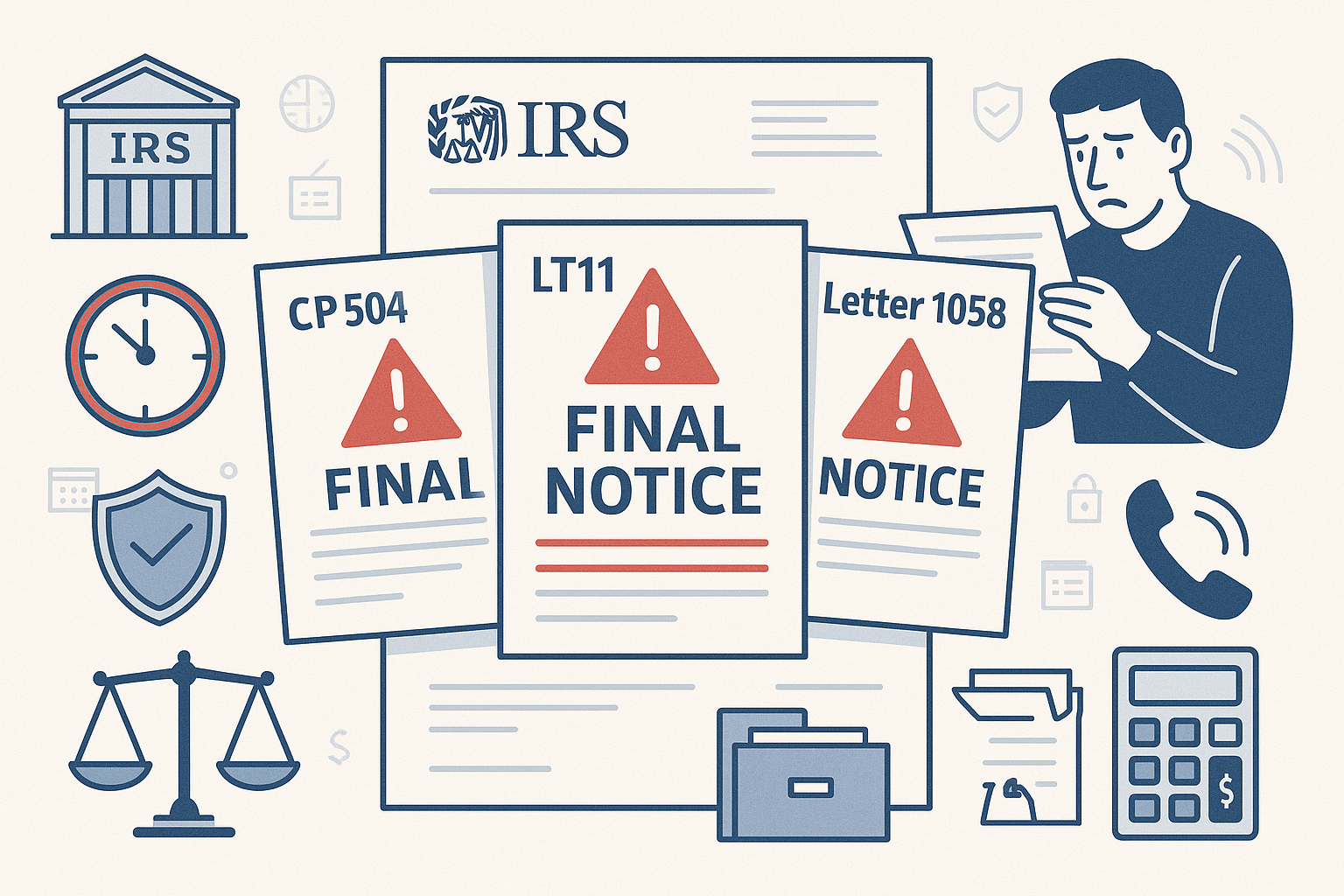 CP & LT Notices
CP & LT NoticesIRS CP and LT notices inform taxpayers about account issues like unpaid balances, unreported income, or return discrepancies. Each coded notice (e.g., CP504, LT11) indicates a specific problem, helping taxpayers gauge its seriousness and potential levy actions.


 IRS Collection Process
IRS Collection ProcessThe IRS collection process is a structured system for recovering unpaid taxes. It begins after tax assessment and escalates through enforcement measures until the debt is resolved, paid, or deemed uncollectible. Knowing your rights, the timeline, and available resolution options is key to protecting assets.


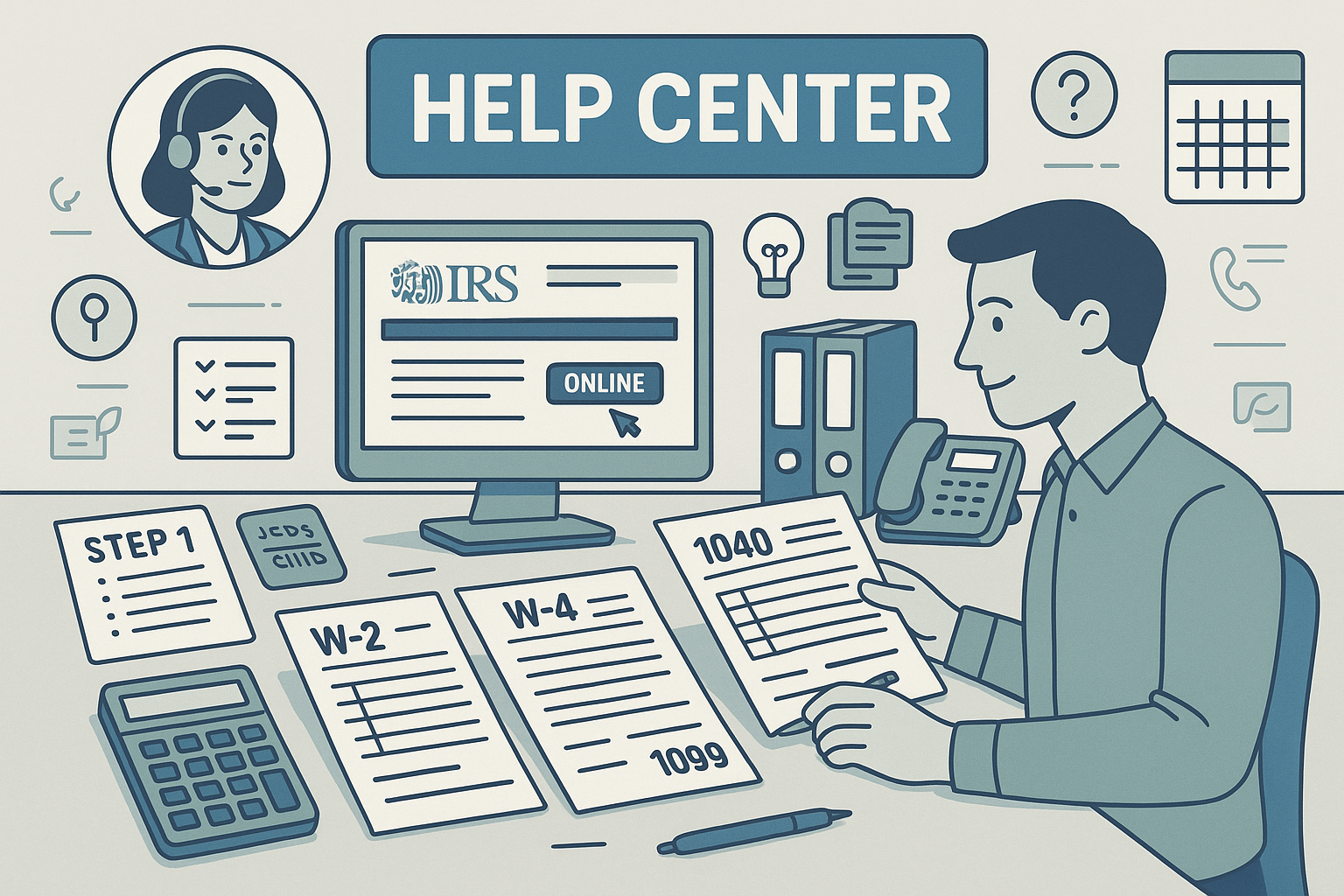 IRS Form Help Center
IRS Form Help CenterThe IRS Form Help Center provides resources to simplify federal tax filing. It explains forms, instructions, and deadlines clearly, reducing stress and confusion. Whether you need a specific form or step-by-step guidance, the center helps taxpayers approach tax season with confidence.


 IRS Offer in Compromise
IRS Offer in CompromiseAn IRS Offer in Compromise lets taxpayers settle their tax debt for less than the full amount owed. It provides a legal resolution, helps protect essential living funds, and offers a structured path to resolve overwhelming tax liabilities.


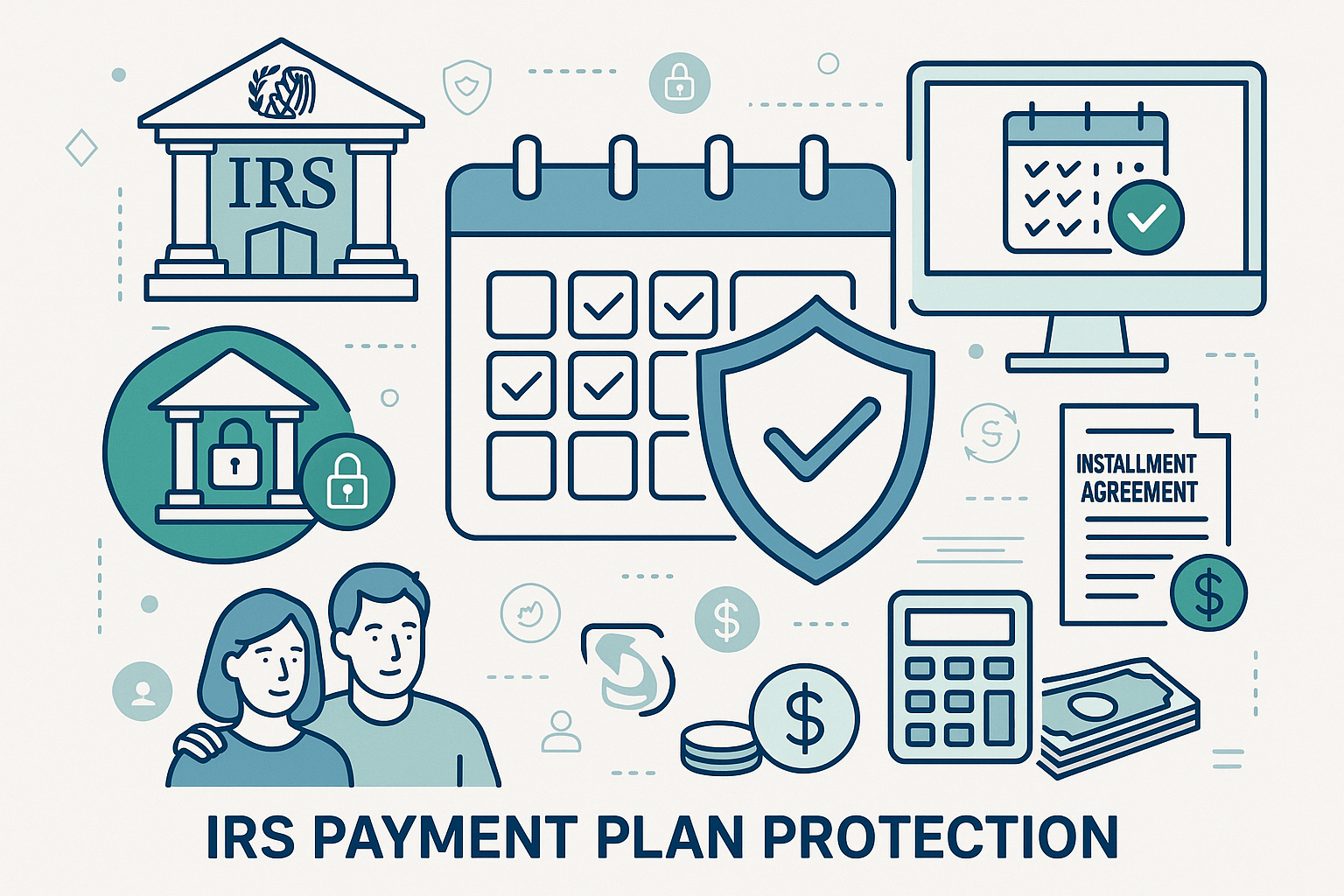 IRS Payment Plans
IRS Payment PlansAn IRS payment plan is one of the most effective defenses against bank levies when dealing with tax debt. By setting up a plan, taxpayers gain legal protection for their bank accounts while making manageable monthly payments. Acting quickly to establish an installment agreement helps preserve essential funds for living expenses and provides a structured path to resolve tax obligations.


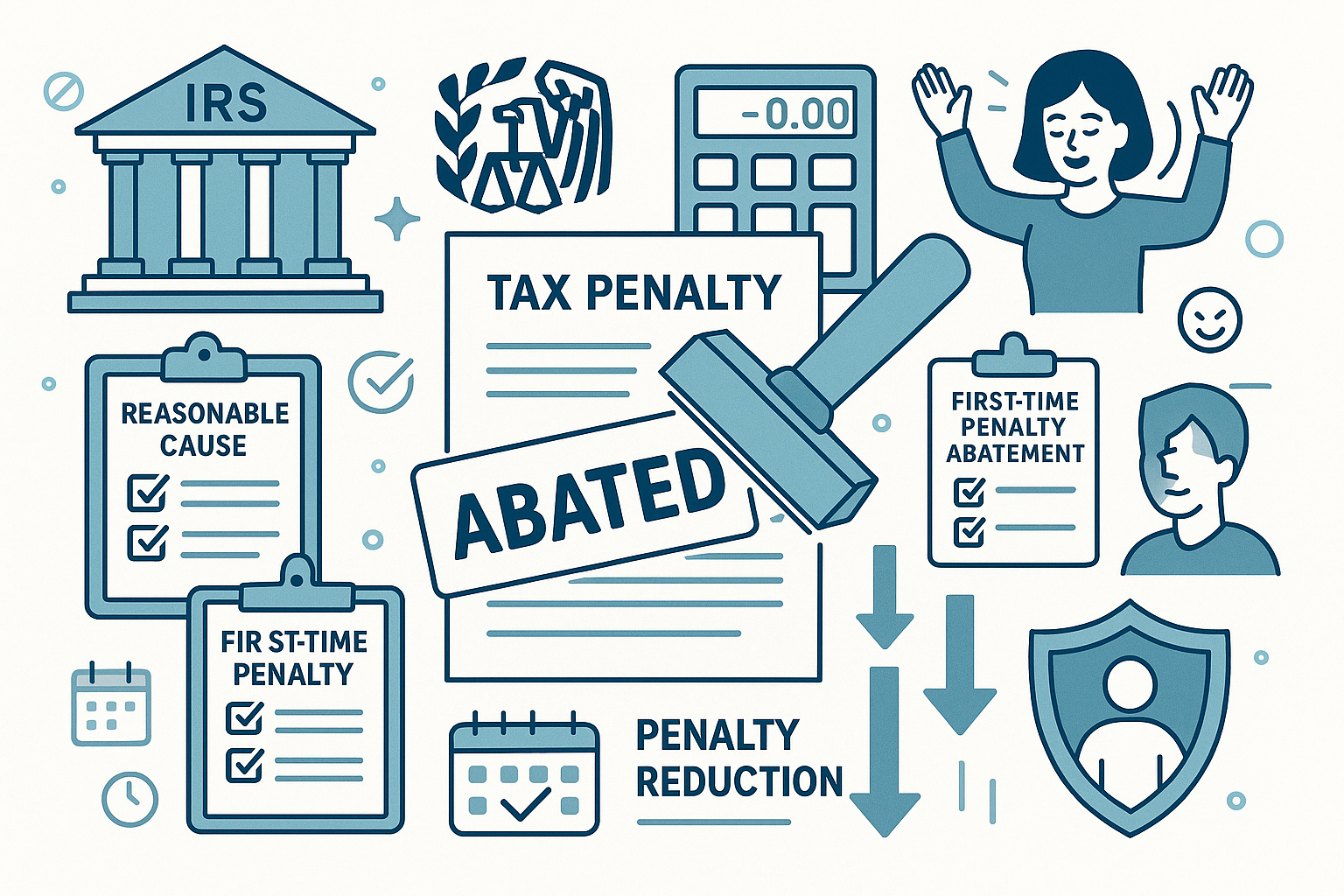 IRS Penalty Abatement
IRS Penalty AbatementIRS penalty abatement is a relief program that lets eligible taxpayers request removal or reduction of penalties for compliance failures. It helps save money and resolve tax liabilities, especially when circumstances beyond a taxpayer’s control prevented timely compliance.


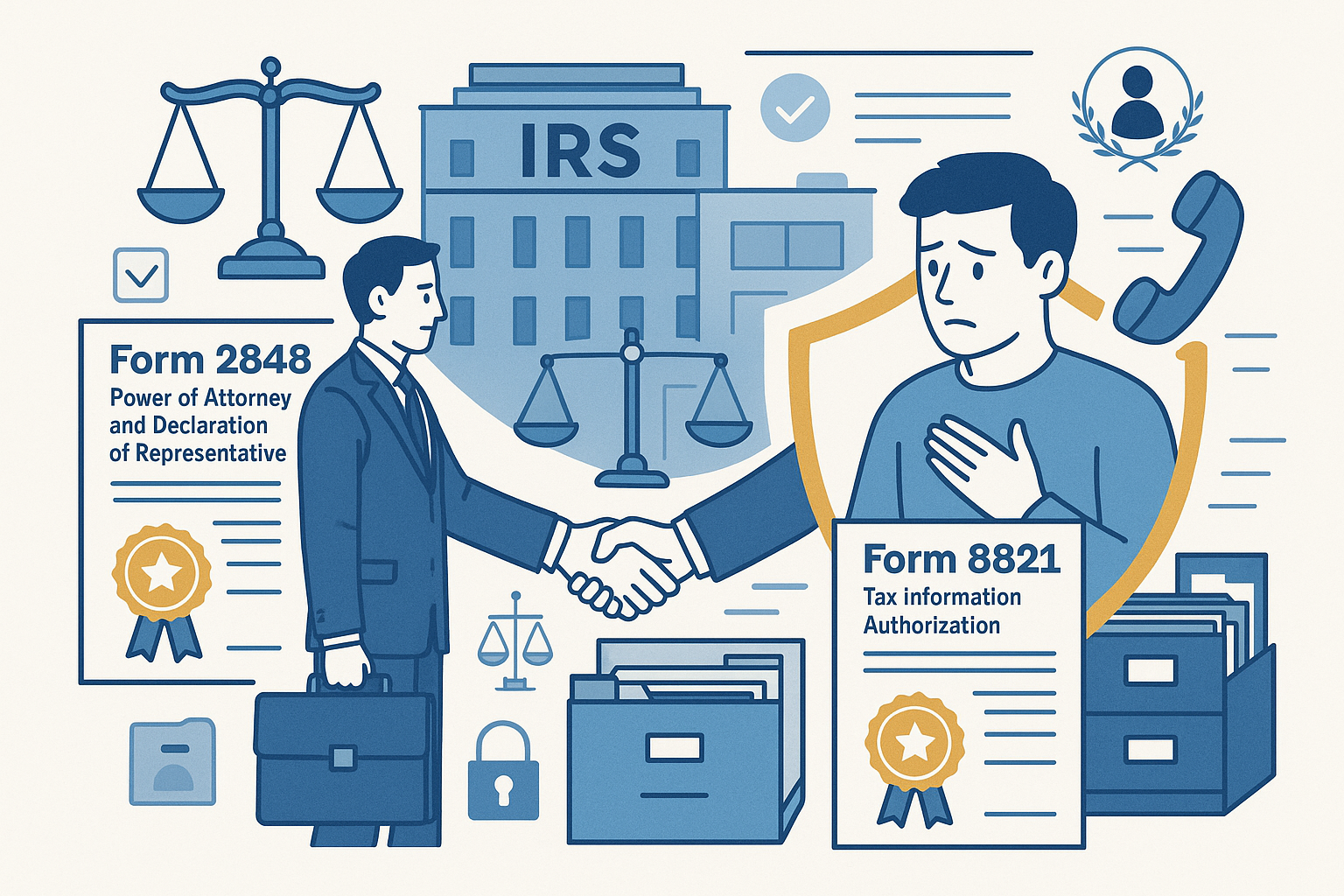 IRS Power of Attorney
IRS Power of AttorneyAn IRS Power of Attorney authorizes a qualified professional to act on your behalf in tax matters. It ensures protection during audits, disputes, and reviews by allowing experts to handle communication with the IRS. Without it, you must personally manage all interactions.


 Innocent Spouse Relief
Innocent Spouse ReliefInnocent Spouse Relief protects individuals from unfair tax debt caused by a spouse’s errors on a joint return. It allows taxpayers to avoid sole responsibility for unreported income or incorrect deductions made by their partner, ensuring fairness in joint liability cases.


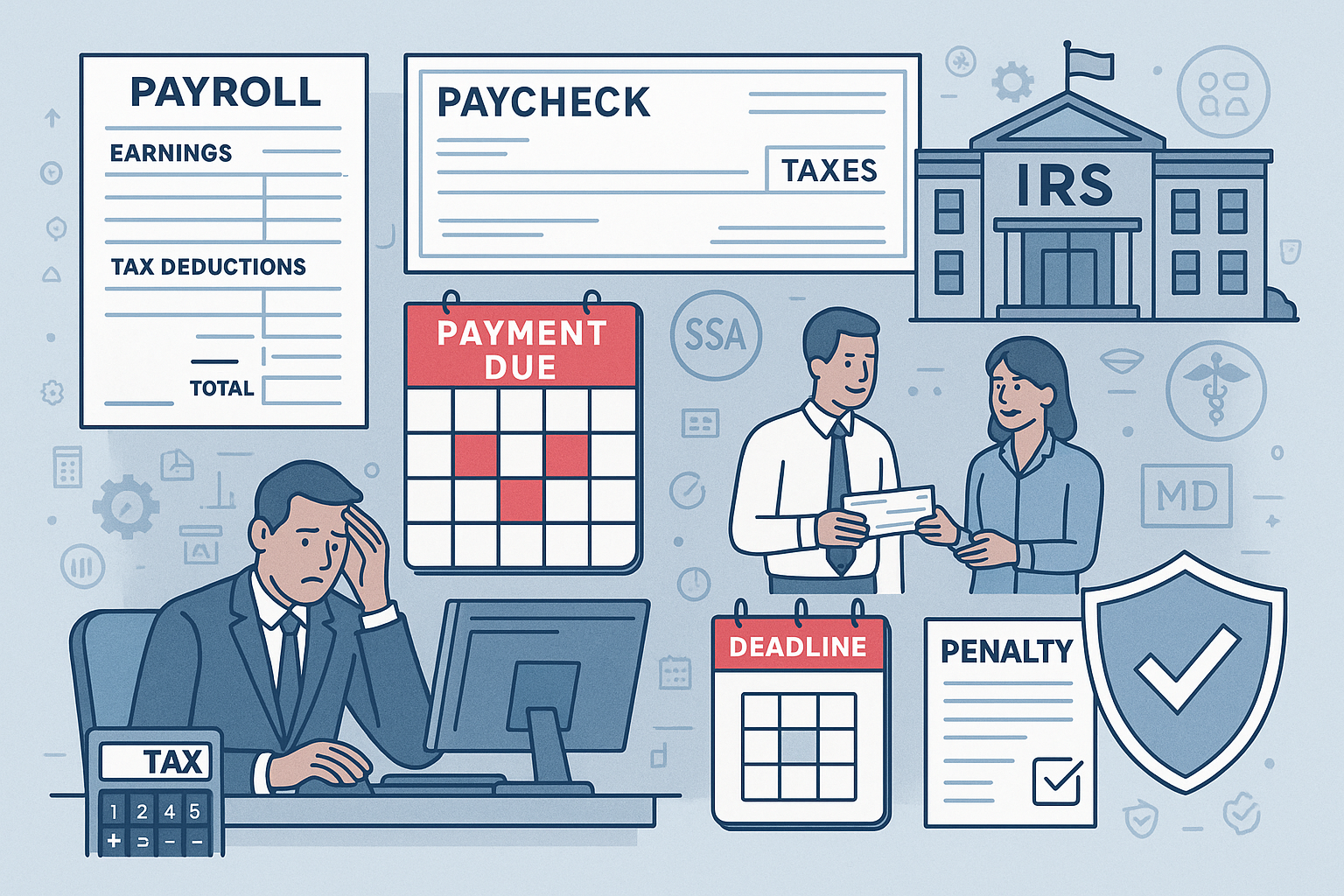 Payroll Tax Issues
Payroll Tax IssuesPayroll taxes are required withholdings from employee wages that fund Social Security, Medicare, and unemployment programs. They provide vital benefits for retirement, disability, and job loss. Employers must manage them accurately to avoid penalties and maintain employee trust.


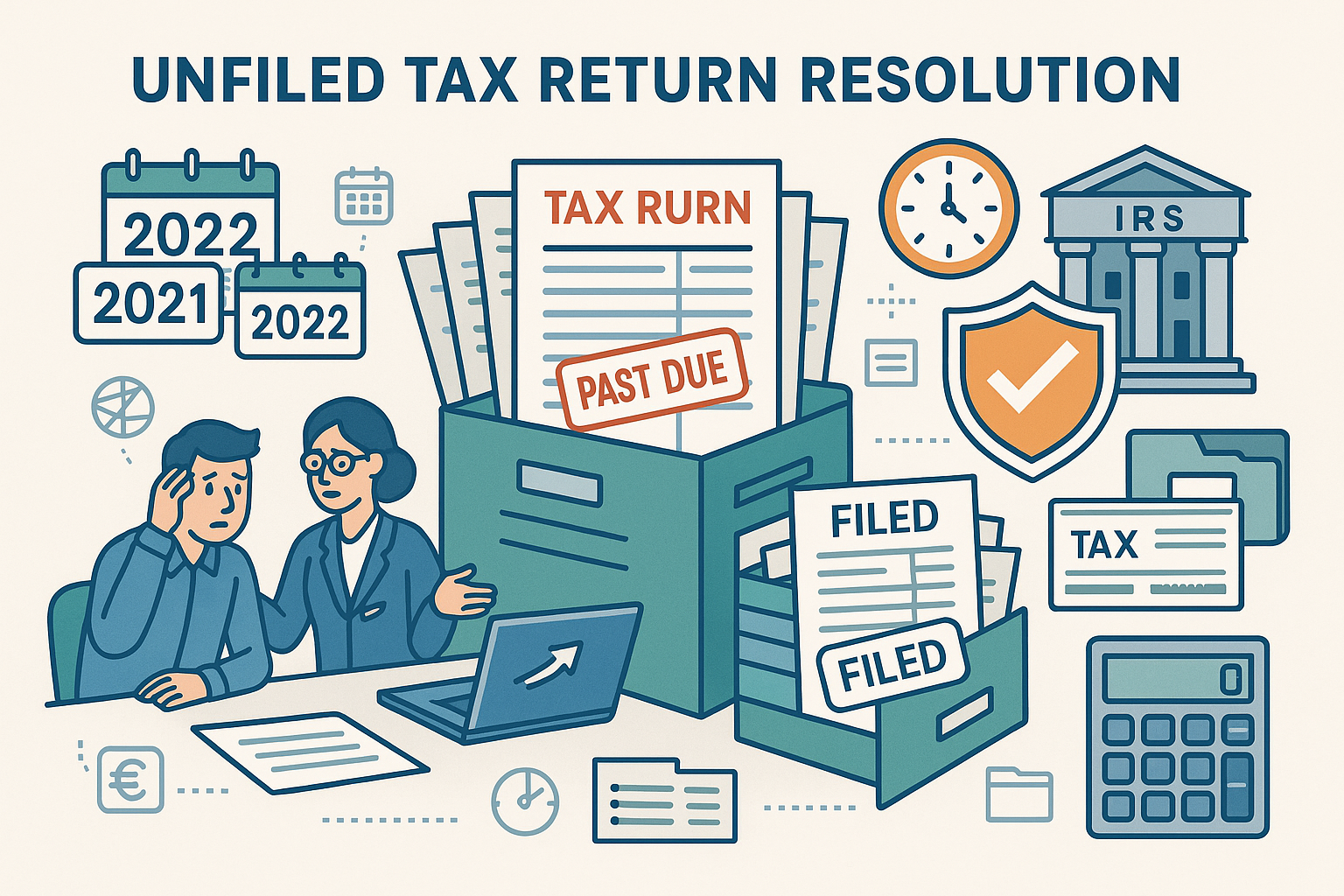 Unfiled Federal Returns
Unfiled Federal ReturnsUnfiled tax returns can result from financial, health, or paperwork challenges. However, delaying worsens consequences—penalties, substitute returns, and aggressive collection actions like wage or account garnishment.


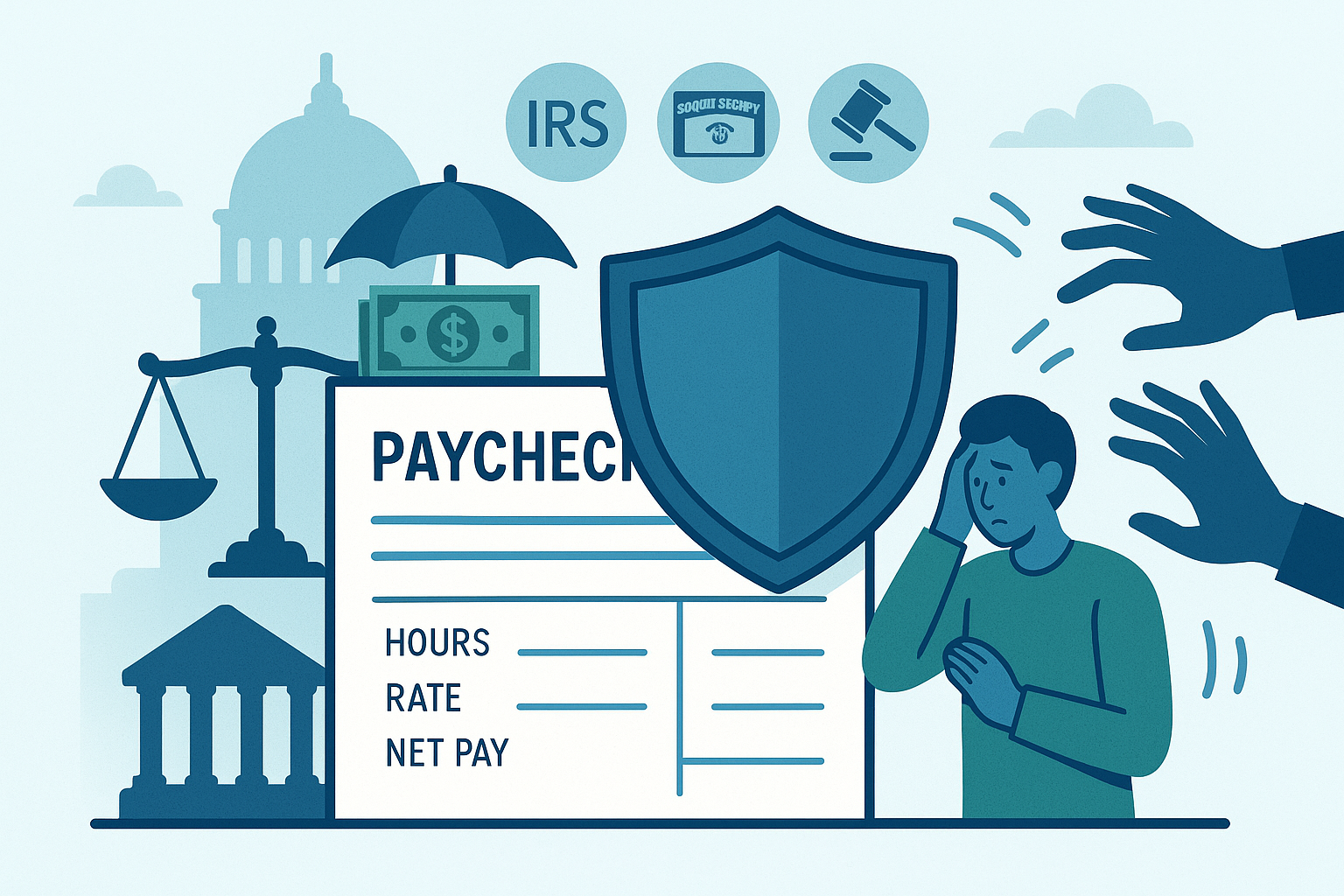 Wage Garnishment Protection
Wage Garnishment ProtectionA wage garnishment allows creditors or government agencies to take money directly from your paycheck to cover unpaid debts, such as taxes. If you are facing a garnishment, it is important to know that you have rights and options for relief.


Your Wage & Income Transcript lists employer-reported income and payment details, making it easier to spot errors affecting child support payments. You can share the transcript with the employer or court to request a correction if something looks incorrect. This ensures accurate records are used when calculating or modifying your support order.
We use encrypted systems and IRS-authorized forms to keep your data safe. Your packet is delivered as a password-protected PDF, ensuring only the right party can view it. Our process is reviewed annually to meet state and federal standards, giving you confidence that your child support payments and personal information remain fully protected.
Yes, but the process can take weeks. You may need to register for an online IRS account, mail Form 4506-T, or wait for documents to be mailed. Our service is faster and includes a plain-English summary so you don’t have to learn how to read complicated transcripts before presenting them to a judge, attorney, or state agency.
Most transcript packets are ready in 3–5 business days. You receive a secure, password-protected PDF by email so you can view and share it quickly. If the IRS causes delays, we notify you and keep you updated until everything is complete, helping you stay on track before a court hearing or support order modification date.
Yes, if you didn’t file taxes for a specific year, we include the official IRS Verification of Non-Filing letter. This document is often required for income verification when applying for social services or in child support cases. You won’t have to visit the IRS or wait for mail delays — we handle and deliver the request securely.
A tax return shows what you filed, but a transcript confirms what the IRS has on record. This ensures accurate income verification for child support payments and hearings. The packet includes a cover page so any person or party reviewing it can quickly set and view key data, making it easier to present during a court appearance.
Your packet includes Wage & Income, Account, Return Transcripts, and a plain-English summary. Each transcript shows child support payments, gross income, and filing history. You can view everything in one place and quickly find the details your attorney, caseworker, or court needs. This complete packet saves you time when preparing for a hearing or submitting documents.
We use bank-level encryption and IRS-approved methods to protect your information. Each request is authorized by IRS Form 8821, and our process is reviewed annually for compliance. Your data is stored securely and deleted after delivery. If you cannot access the email, visit our secure portal to download your packet again.
If transcripts are incomplete or outdated, we will note this in your packet and provide the next steps based on IRS guidance. You may be asked to file missing returns or update your address. Our summary references IRS publications so you can take action quickly and avoid delays in your Social Security application or appeal.
Most packets are ready within 3–5 business days. We monitor IRS systems daily and deliver your documents as soon as they are available. If the IRS cannot process the request immediately, you’ll receive updates by email. You can visit your secure client portal anytime to check the status of your retrieval.
Our priority, and we're committed to offering thorough responses to ensure you have the information you need to move forward with confidence.